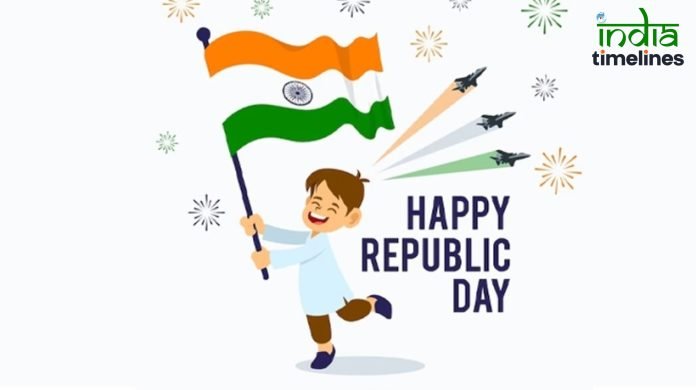
Republic Day, a cornerstone in India’s rich tapestry of celebrations, stands as a symbol of democratic pride and constitutional strength. As we approach Republic Day 2024, let’s delve into the history, significance, and ways to celebrate this momentous occasion.
History of Republic Day
Republic Day traces its roots to the early 20th century, culminating in the adoption of the Indian Constitution on January 26, 1950. The day signifies the transition from a British Dominion to a sovereign Republic, solidifying India’s independent identity.
Significance of Republic Day
Beyond the grandeur of parades and cultural events, Republic Day holds profound importance. It’s a day to commemorate the adoption of the Constitution, reflecting on democratic values, and honoring the sacrifices of national heroes who paved the way for a free India.
Republic Day Celebrations
The celebrations are marked by the hoisting of the national flag, parades showcasing India’s diverse cultural heritage, and patriotic programs in schools. Community gatherings and events echo the collective spirit of the nation.
Symbolic Elements
The National Anthem and Flag take center stage, accompanied by the President’s address to the nation. The march past and tableau presentations showcase India’s unity in diversity.
Traditional Activities
Kite flying competitions, patriotic songs, and distribution of sweets add a traditional touch to Republic Day celebrations. These activities foster a sense of community and shared joy.
Republic Day Across Different States
While the essence remains the same, each state adds its unique flavor to the celebrations. Diverse cultural expressions and regional variations in traditions make Republic Day a truly pan-Indian festival.
Public Participation
Republic Day is not merely a government affair; citizens actively participate in the festivities. This involvement is crucial in fostering a sense of belonging and pride in the democratic fabric of the nation.
Educational Significance
Schools play a pivotal role in instilling patriotic values. Incorporating Republic Day into curriculums and organizing events helps educate the younger generation about the country’s history and democratic principles.
Historical Milestones
Reflecting on notable Republic Day events provides a glimpse into the evolution of celebrations over the years. It’s a journey marked by achievements, challenges, and the resilience of a nation.
Challenges and Controversies
While Republic Day is a moment of unity, it’s not immune to criticisms and debates. Addressing these concerns is vital for a healthy democracy, ensuring continuous growth and improvement.
Republic Day in the Digital Age
In today’s digital era, social media plays a significant role in amplifying the celebrations. Virtual events and online participation have become integral, connecting people across the globe in celebrating India’s Republic Day.
Inspirational Stories
Amidst the grandeur, Republic Day is an opportunity to shine a light on unsung heroes and share personal anecdotes of patriotism. These stories inspire and reinforce the values that bind the nation.
Global Recognition
Republic Day goes beyond national borders, gaining international acknowledgment. Its diplomatic significance highlights India’s role on the global stage.
Conclusion
As we conclude our exploration of Republic Day, it’s essential to remember the core values it represents. Beyond the festivities, Republic Day serves as a reminder of the shared commitment to democracy, freedom, and unity. Let’s carry this spirit forward, celebrating not just on January 26 but every day.




































